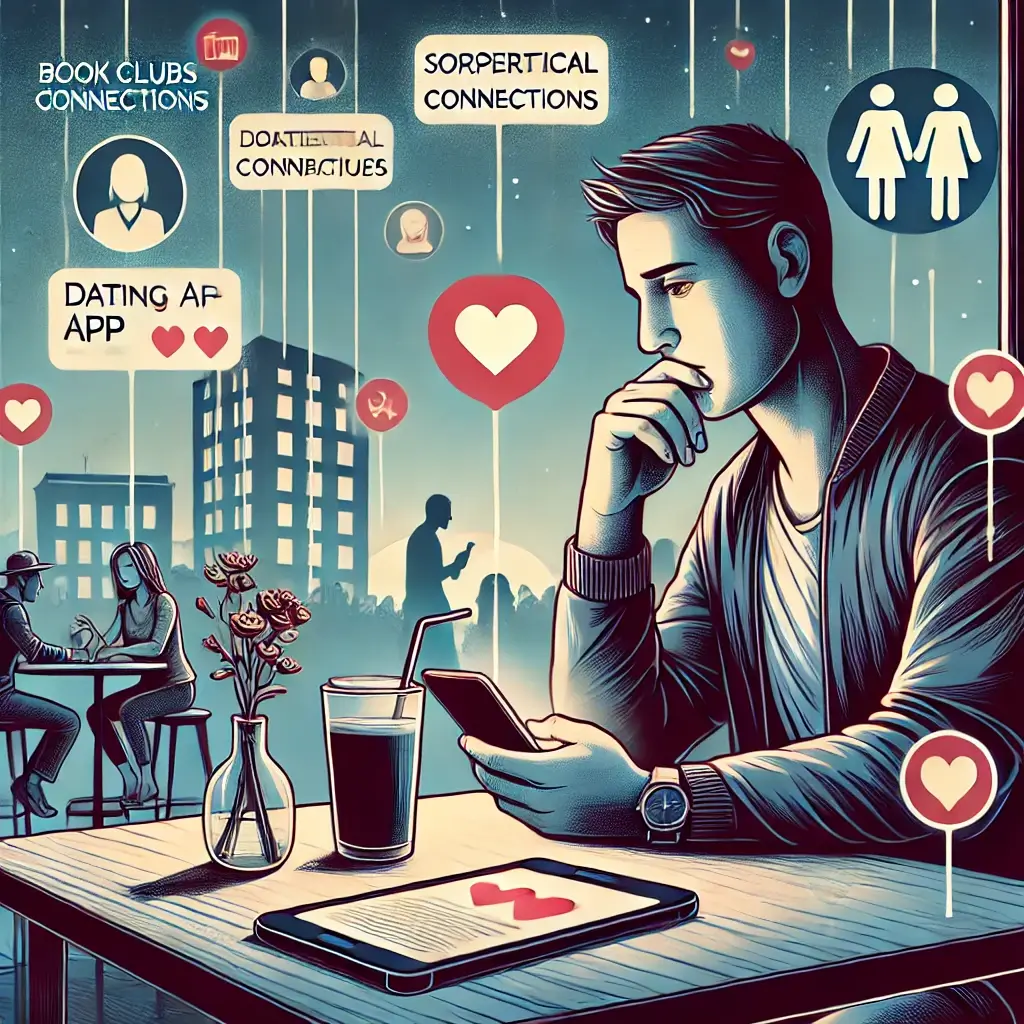The Rise of Dating App Fatigue
In recent years, dating apps have become synonymous with modern romance, offering an array of potential matches at the swipe of a finger. While these platforms have revolutionized how people meet, they are not without their drawbacks. Dating app fatigue has emerged as a widespread phenomenon, marked by feelings of frustration, burnout, and emotional exhaustion. According to a 2024 Pew Research Center report, over 30% of app users report dissatisfaction with the process, citing superficial interactions and a lack of meaningful connections as major challenges (Pew Research Center, 2024).
Seeking Alternative Relationship-Building Methods
This growing disillusionment has spurred a movement toward alternative methods of meeting partners. As Dr. Sarah Richardson of Stanford University notes, “The convenience of dating apps often masks their inability to foster the depth of connection many users crave” (Richardson, 2023). This article explores the factors contributing to dating app fatigue and highlights evidence-based strategies for fostering authentic relationships through alternative means.
The Psychological Toll of Dating Apps
Studies have documented the negative psychological impacts of prolonged dating app use. A 2023 study led by Dr. Michael Chen at UCLA examined 2,500 active app users aged 18 to 45. Key findings include:
- 67% reported feeling “burnt out” after three months of active use.
- 72% experienced a decline in self-esteem due to frequent rejection or lack of matches.
- 81% expressed a desire for more organic ways to meet potential partners (Chen et al., 2023).
The Gamification of Dating and Its Effects
These findings underscore how the gamified nature of dating apps—characterized by endless swiping and superficial judgments—can exacerbate feelings of inadequacy and dissatisfaction. Furthermore, the pressure to present a curated version of oneself often leaves users questioning the authenticity of their interactions.
Exploring Alternatives: A Shift Toward Authenticity
Amid growing concerns about the limitations of dating apps, many individuals are turning to alternative methods to meet potential partners. A 2023 University of Michigan study by Thompson et al. highlights three particularly effective approaches:
- Shared Interest Groups: Activities such as book clubs, fitness classes, or hobby meetups create opportunities for natural interactions. With a reported success rate of 45%, these environments foster connections rooted in mutual interests and shared values (Thompson et al., 2023).
- Professional Networking Events: Work-related gatherings provide an organic setting for meeting like-minded individuals. Approximately 38% of surveyed couples met through such events, emphasizing the value of shared goals and professional compatibility (Thompson et al., 2023).
- Volunteer and Community Engagement: Volunteering for a cause aligns individuals with shared values and promotes meaningful bonds. Relationships formed through community service boast a 42% success rate, reflecting the emotional depth fostered by collective altruism (Thompson et al., 2023).
Actionable Strategies for Real-World Connections
Dr. Emily Martinez of the Relationship Research Institute provides actionable insights into navigating the modern dating landscape without relying solely on technology. Her 2024 clinical study suggests the following:
- Prioritize Authenticity: Instead of focusing on quantity, aim for quality in your interactions. Genuine conversations often lead to stronger connections.
- Expand Your Social Circles: Attend local events, join interest-based groups, and reconnect with old friends to create opportunities for organic encounters.
- Balance Digital and Real-World Efforts: Use dating apps sparingly, treating them as supplementary tools rather than primary solutions.
The Importance of Emotional Preparedness
Additionally, Martinez’s research emphasizes the importance of emotional preparedness. She notes, “Self-awareness and emotional health are key factors in building lasting relationships. Taking time to reflect on personal goals and values can significantly enhance dating experiences” (Martinez, 2024).
The Role of Emotional Readiness in Dating
Beyond methods of meeting, emotional readiness plays a crucial role in relationship success. Dr. Richardson advises individuals to cultivate self-awareness and patience before seeking romantic connections. This includes setting realistic expectations and maintaining a strong sense of self-worth. “When individuals enter the dating scene with a clear understanding of their needs and boundaries, they are more likely to form meaningful, fulfilling partnerships,” she explains (Richardson, 2023).
Conclusion: Beyond Digital Dating
Dating app fatigue is a testament to the limitations of technology in addressing the complexities of human connection. While digital platforms have their place, relying exclusively on them can lead to burnout and dissatisfaction. By embracing alternative methods such as shared interest groups, professional networking, and volunteer opportunities, individuals can foster relationships that prioritize authenticity and shared values.
Finding True Connection
As Dr. Richardson aptly states, “True connection arises when we step away from the superficial and engage deeply with those around us. The path to meaningful relationships is often found in the simplest, most genuine interactions” (Richardson, 2023).
References
Chen, M., et al. (2023). “Digital Dating Fatigue: Psychological Impacts of Extended Dating App Usage.” Journal of Social and Personal Relationships, 40(2), 145-167.
Martinez, E. (2024). “Alternative Dating Approaches: A Clinical Study.” Relationship Research Institute Quarterly, 8(1), 12-28.
Pew Research Center. (2024). “Modern Dating Trends and Behavioral Patterns.” Social Trends Report.
Richardson, S. (2023). “The Psychology of Digital Dating.” Stanford Social Psychology Review, 25(3), 234-251.
Thompson, K., et al. (2023). “Comparative Analysis of Modern Dating Methods.” University of Michigan Behavioral Psychology Review, 15(4), 78-92.
